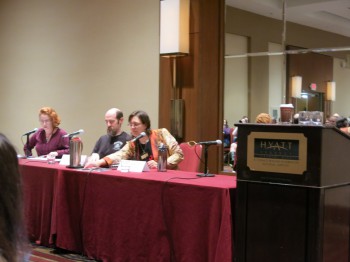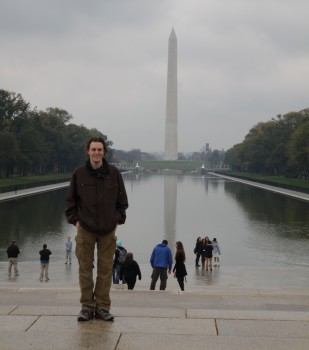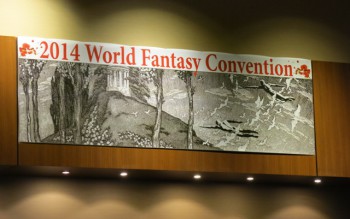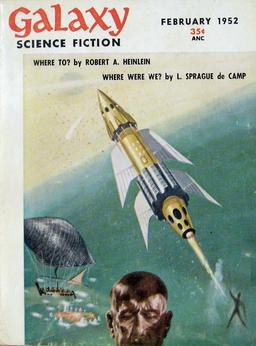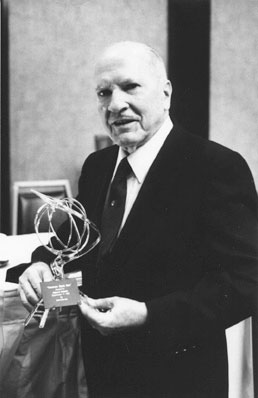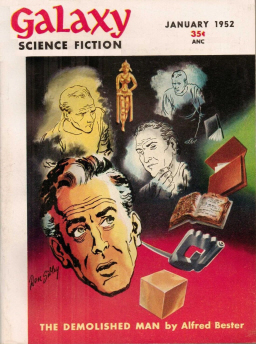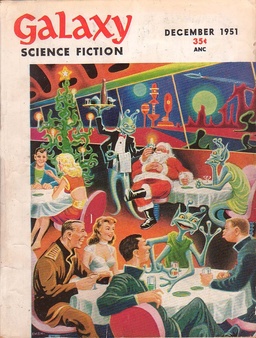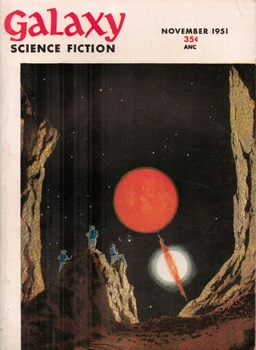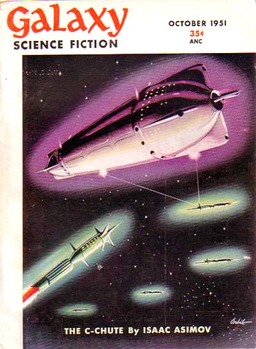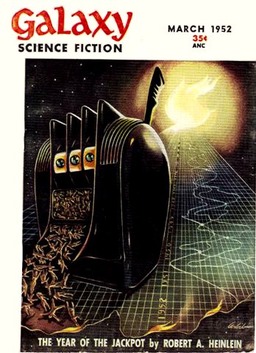 The March, 1952 issue of Galaxy opens with a word from the editor, H. L. Gold. Gold introduces Willy Ley, who’s beginning his monthly department, “For Your Information,” that will vary from complete articles to brief reports on “significant developments in science.”
The March, 1952 issue of Galaxy opens with a word from the editor, H. L. Gold. Gold introduces Willy Ley, who’s beginning his monthly department, “For Your Information,” that will vary from complete articles to brief reports on “significant developments in science.”
Along with the introduction, Gold states that a number of readers have asked what he’s like, so shares some details. Of his name, he writes, “Named H(orace) L(eonard) after a prompt casualty in the Princess Pat Regiment. I can’t pretend to be fond of my name, but I don’t use initials to escape it; that was decided upon by an editor, though other editors have used the whole thing. Having had 32 pen names, I find the problem shrug-worthy.” 32 pen names? Was he going for a world record?
About Galaxy, Gold writes, “Galaxy, of course, is my own dream come true. I know I sometimes push too hard, but that’s because everyone wants his dream to be perfect.” I’m glad he did. It was a good dream.
“The Year of the Jackpot” by Robert A. Heinlein — Potiphar Breen is a numbers guy — statistician, analyst, or any role where he can use his skills in numbers and patterns. The latest pattern is an increasing number of odd behaviors, such as women publicly disrobing for no apparent reason. He interviews one of the women, Meade Barstow, and the two of them begin meeting routinely. When the statistics show the approach of an unknown climactic event, Potiphar and Meade flee the city, hoping to avoid becoming a statistic of their own.
I couldn’t quite buy in to the premise of the story, but I let that go. It does move along pretty quickly, and when things start to go bad, they go really bad. And by that point, the predictability of it all isn’t as important as pure survival.
…
Read More Read More
